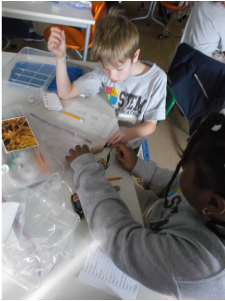
As third graders dig deeper into electrical engineering, not all materials can conduct electricity. Those that allow electricity to pass through them are called conductors. Those that do not allow electricity to pass through them are insulators.
Using a wide variety of materials, third graders are learning to revise their claims as to what materials actually are conductors and those that are insulators. They are collecting evidence using a simple circuit that is open, inserting a material. If the light bulb lights up, then the material is a conductor. If not, then it's an insulator!
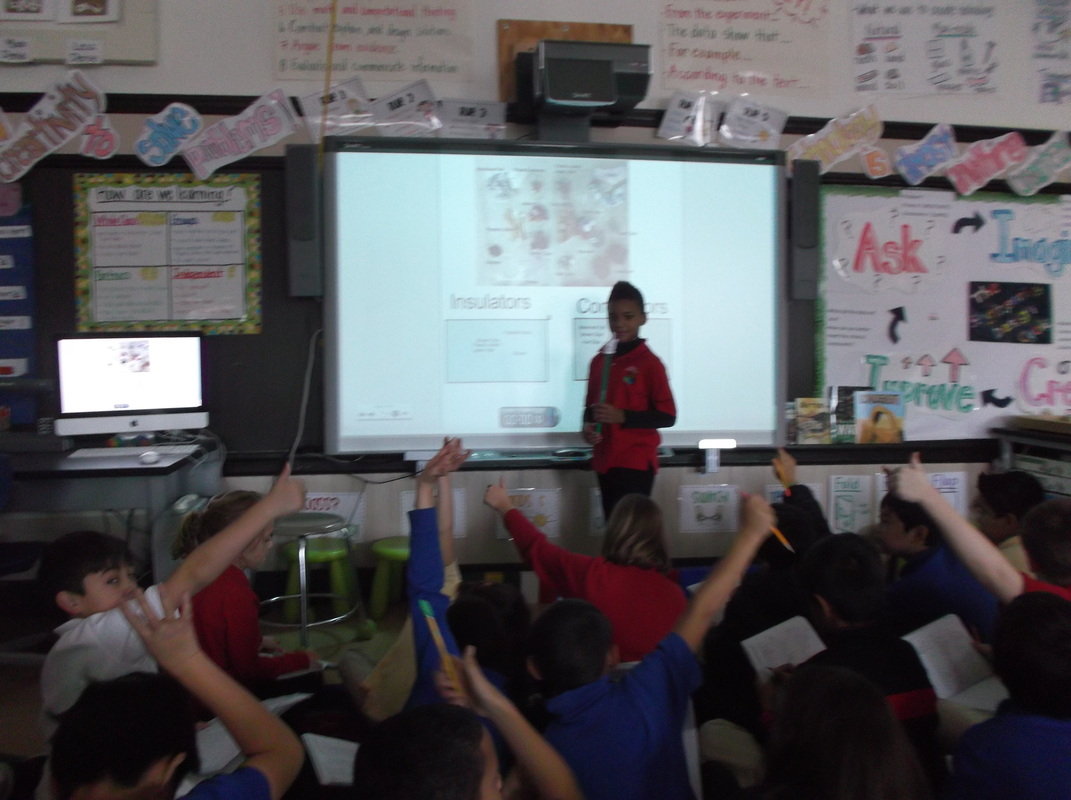
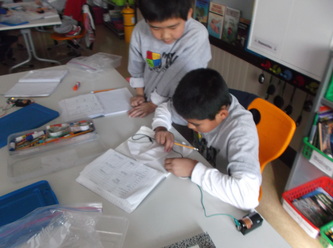
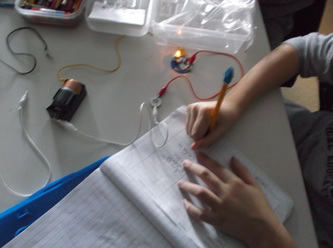
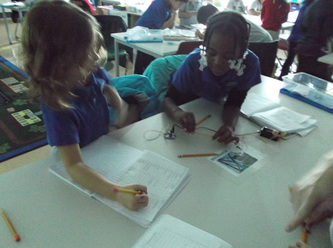
 RSS Feed
RSS Feed